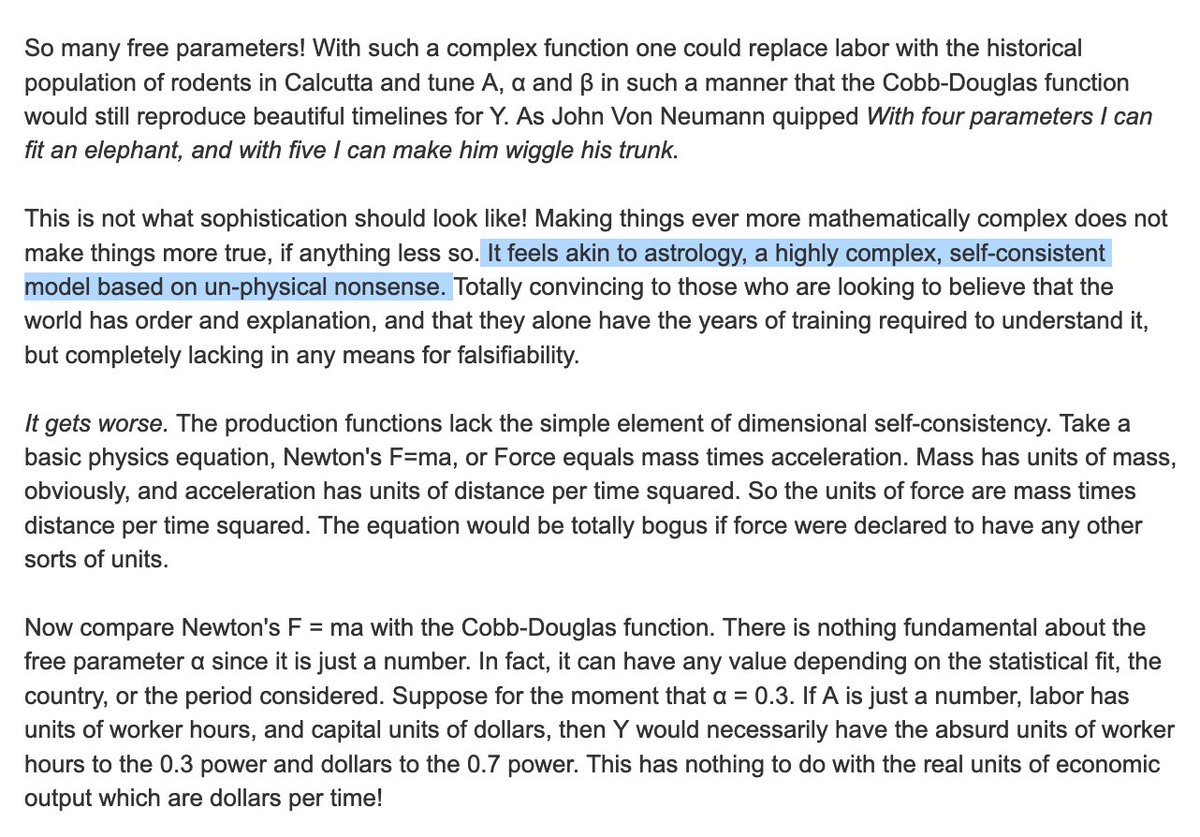
While humanity may not survive a doubling of CO2, economists assume that unsurvivable futures can be treated as essentially trivial costs, barely worth talking about.
Policy over the past 30 years acted as if this weren't insane. Now, the window of action is essentially closed. What else is there to say?
Fair point that some lifeforms, mammals & humans may survive even an end-Permian-like supercharged new mass extinction. Just not humanity in its present form, which is what matters for most of us. This isn't a paper exercise, we talk lots of lives here.
https://twitter.com/_ppmv/status/1465049708720795649
What’s messing with my perception of reality is that economists have so completely lost touch with global dynamics. 1.5°C by 2030 is locked in by past emissions, and rapid decarbonization would even accelerate warming. At some point we need to move beyond kindergarten dynamics
https://twitter.com/CKemfert/status/1465051232293339136
• • •
Missing some Tweet in this thread? You can try to
force a refresh










